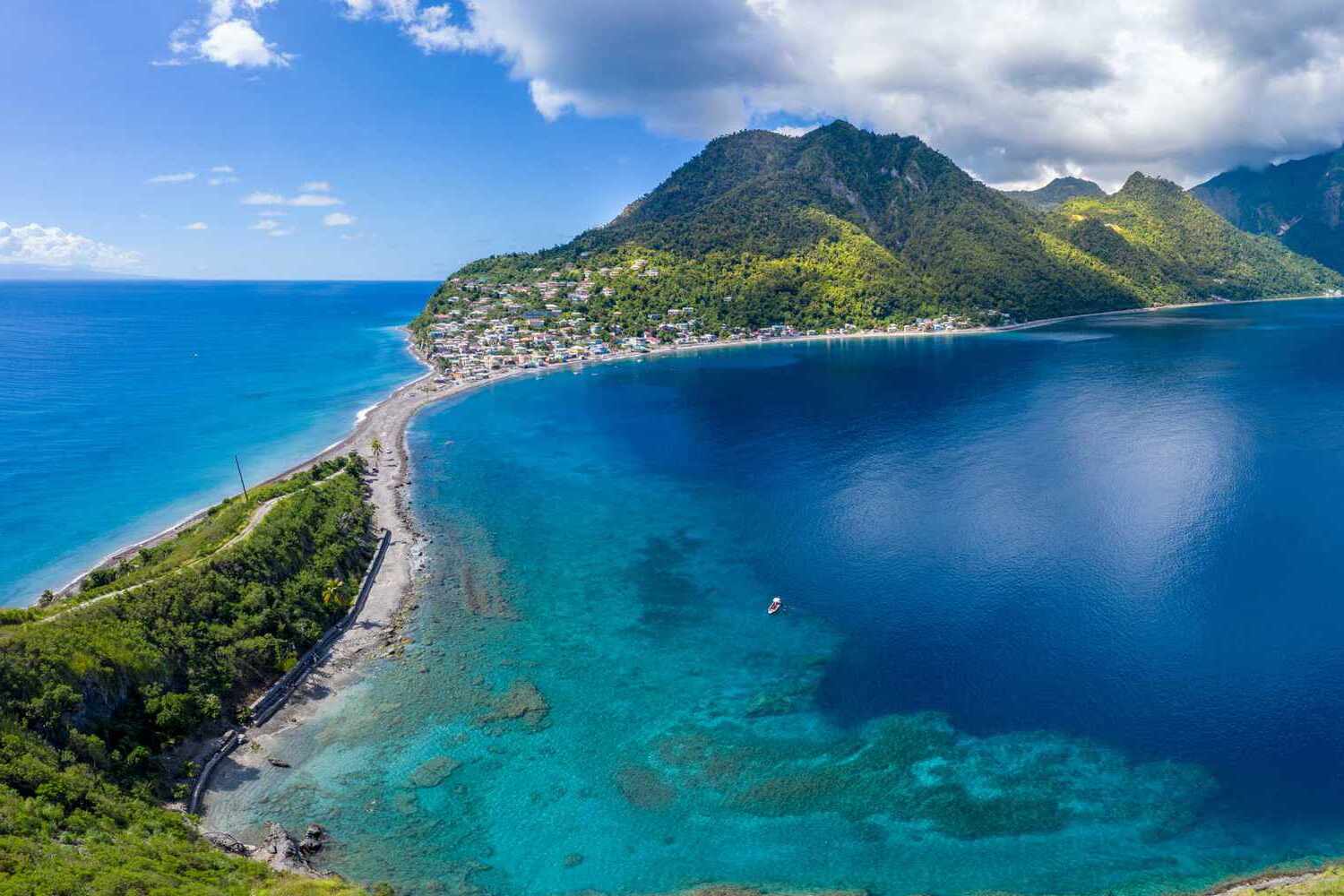
Dominica, often called the "Nature Isle of the Caribbean," is a hidden gem brimming with lush rainforests, volcanic peaks, and pristine beaches. But what makes this island truly special? Dominica boasts the second-largest boiling lake in the world, a haven for adventure seekers and nature lovers alike. Its rich culture, influenced by African, Carib, and European heritage, offers a unique blend of traditions and festivals. Did you know that Dominica is home to the last remaining community of indigenous Carib people in the Caribbean? From its vibrant marine life to its eco-friendly tourism, Dominica stands out as a paradise waiting to be explored. Ready to dive into 15 fascinating facts about this enchanting island?
Key Takeaways:
- Dominica, the "Nature Isle of the Caribbean," is home to Boiling Lake, 365 rivers, and unique wildlife. It's a paradise for nature lovers and adventure seekers, with world-renowned scuba diving and canyoning opportunities.
- Dominica's commitment to sustainability and eco-tourism makes it a model for preserving natural beauty. The island aims to become the world's first climate-resilient nation, offering a vibrant mix of culture, history, and environmental initiatives.
15 Facts About Dominica
Dominica, often called the "Nature Isle of the Caribbean," is a gem waiting to be explored. This island nation is rich in culture, history, and natural beauty. Let's dive into some fascinating facts about Dominica.
Unique Geography
Dominica's landscape is unlike any other in the Caribbean. Its rugged terrain and lush rainforests make it a paradise for nature lovers.
- Dominica is home to Boiling Lake, the second-largest hot spring in the world. The lake's water temperature ranges between 180-197°F (82-92°C).
- The island boasts 365 rivers, one for each day of the year. These rivers offer countless opportunities for swimming, fishing, and exploring.
- Dominica is the only Caribbean island with volcanic activity. The island has nine active volcanoes, though none have erupted in recent history.
Rich Biodiversity
Dominica's diverse ecosystems support a wide variety of plant and animal life. The island is a haven for wildlife enthusiasts.
- The Sisserou Parrot, also known as the Imperial Amazon, is Dominica's national bird. This rare parrot is found only in Dominica's mountainous rainforests.
- Dominica's waters are home to sperm whales year-round. It's one of the few places in the world where these majestic creatures can be seen so frequently.
- The island has over 1,200 plant species, including many rare orchids and ferns. Dominica's rainforests are a botanist's dream.
Cultural Heritage
Dominica's culture is a vibrant mix of indigenous, African, and European influences. The island's history is rich and varied.
- The Kalinago people, also known as Caribs, are the island's indigenous inhabitants. They have a dedicated territory on the island where they preserve their traditions and way of life.
- Dominica celebrates Creole Day every October. This festival showcases the island's Creole culture through music, dance, and food.
- The island's capital, Roseau, is known for its colorful colonial architecture. Walking through Roseau feels like stepping back in time.
Adventure and Activities
Dominica offers a plethora of activities for adventure seekers. From hiking to diving, there's something for everyone.
- The Waitukubuli National Trail is the Caribbean's longest hiking trail. It spans 115 miles (185 km) and takes hikers through diverse landscapes.
- Scuba diving in Dominica is world-renowned. The island's underwater volcanic formations create unique dive sites with vibrant marine life.
- Dominica is a hotspot for canyoning. Adventurers can rappel down waterfalls and navigate through river gorges.
Environmental Initiatives
Dominica is committed to preserving its natural beauty. The island has taken significant steps towards sustainability.
- Dominica aims to become the world's first climate-resilient nation. After Hurricane Maria in 2017, the island has focused on rebuilding with sustainability in mind.
- The island has several protected areas, including national parks and marine reserves. These areas help conserve Dominica's unique ecosystems.
- Dominica promotes eco-tourism. Visitors are encouraged to explore the island's natural wonders while minimizing their environmental impact.
Final Glimpse of Dominica
Dominica, often called the "Nature Island," offers a unique blend of natural beauty and rich culture. From its lush rainforests and stunning waterfalls to its vibrant Creole traditions, there's something for everyone. The island's geothermal activity creates hot springs and the famous Boiling Lake, adding to its allure. Dominica's commitment to eco-tourism ensures that its pristine environment remains protected for future generations. The island's diverse wildlife, including rare bird species and marine life, makes it a paradise for nature enthusiasts. Whether you're exploring the UNESCO World Heritage Site of Morne Trois Pitons National Park or enjoying the local cuisine, Dominica promises an unforgettable experience. Its friendly locals and laid-back atmosphere make it a perfect destination for those seeking adventure and relaxation. So, pack your bags and get ready to explore this Caribbean gem. Dominica awaits with open arms.
Frequently Asked Questions
Was this page helpful?
Our commitment to delivering trustworthy and engaging content is at the heart of what we do. Each fact on our site is contributed by real users like you, bringing a wealth of diverse insights and information. To ensure the highest standards of accuracy and reliability, our dedicated editors meticulously review each submission. This process guarantees that the facts we share are not only fascinating but also credible. Trust in our commitment to quality and authenticity as you explore and learn with us.


